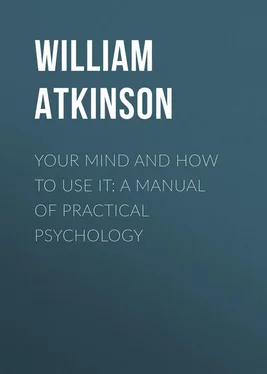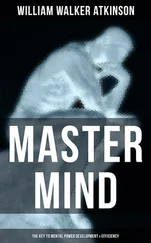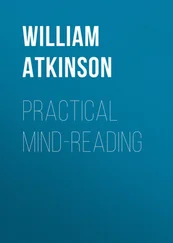William Atkinson - Your Mind and How to Use It - A Manual of Practical Psychology
Здесь есть возможность читать онлайн «William Atkinson - Your Mind and How to Use It - A Manual of Practical Psychology» — ознакомительный отрывок электронной книги совершенно бесплатно, а после прочтения отрывка купить полную версию. В некоторых случаях можно слушать аудио, скачать через торрент в формате fb2 и присутствует краткое содержание. Жанр: foreign_antique, foreign_prose, на английском языке. Описание произведения, (предисловие) а так же отзывы посетителей доступны на портале библиотеки ЛибКат.
- Название:Your Mind and How to Use It: A Manual of Practical Psychology
- Автор:
- Жанр:
- Год:неизвестен
- ISBN:нет данных
- Рейтинг книги:5 / 5. Голосов: 1
-
Избранное:Добавить в избранное
- Отзывы:
-
Ваша оценка:
- 100
- 1
- 2
- 3
- 4
- 5
Your Mind and How to Use It: A Manual of Practical Psychology: краткое содержание, описание и аннотация
Предлагаем к чтению аннотацию, описание, краткое содержание или предисловие (зависит от того, что написал сам автор книги «Your Mind and How to Use It: A Manual of Practical Psychology»). Если вы не нашли необходимую информацию о книге — напишите в комментариях, мы постараемся отыскать её.
Your Mind and How to Use It: A Manual of Practical Psychology — читать онлайн ознакомительный отрывок
Ниже представлен текст книги, разбитый по страницам. Система сохранения места последней прочитанной страницы, позволяет с удобством читать онлайн бесплатно книгу «Your Mind and How to Use It: A Manual of Practical Psychology», без необходимости каждый раз заново искать на чём Вы остановились. Поставьте закладку, и сможете в любой момент перейти на страницу, на которой закончили чтение.
Интервал:
Закладка:
The importance of memory cannot be overestimated. Not only does a man's character and education depend chiefly upon it, but his very mental being is bound up with it. If there were no memory, man would never progress mentally beyond the mental state of the newborn babe. He would never be able to profit by experience. He would never be able to form clear perceptions. He would never be able to reason or form judgments. The processes of thought depend for material upon the memory of past experiences; this material lacking, there can be no thought.
Memory has two important general functions, viz.: (1) The retention of impressions and experiences; and (2) the reproduction of the impressions and experiences so retained.
It was formerly held that the memory retained only a portion of the impressions and experiences originally noted by it. But the present theory is that it retains every impression and experience which is noted by it. It is true that many of these impressions are never reproduced in consciousness, but experiments tend to prove, nevertheless, that the records are still in the memory and that appropriate and sufficiently strong stimuli will bring them into the field of consciousness. The phenomena of somnambulism, dreams, hysteria, delirium, approach of death, etc., show that the subconscious mind has an immense accumulation of apparently forgotten facts, which unusual stimuli will serve to recall.
The power of the memory to reproduce the retained impressions and experiences is variously called remembrance, recollection, or memory. This power varies materially in various individuals, but it is an axiom of psychology that the memory of any person may be developed and trained by practice. The ability to recall depends to a great extent upon the clearness and depth of the original impression, which in turn depends upon the degree of attention given to it at the time of its occurrence. Recollection is also greatly aided by the law of association, or the principle whereby one mental fact is linked to another. The more facts to which a given fact is linked, the greater the ease by which it is recalled or remembered. Recollection is also greatly assisted by use and exercise. Like the fingers, the memory cells of the brain become expert and efficient by use and exercise, or stiff and inefficient by lack of the same.
In addition to the phases of retention and reproduction, there are two important phases of memory, viz.: (3) Recognition of the reproduced impression or experience; and (4) localization of the impression, or its reference to a more or less definite time and place.
The recognition of the recalled impression is quite important. It is not enough that the impression be retained and recalled. If we are not able to recognize the recalled impression as having been experienced before, the recollection will be of but little use to us in our thought processes; the purposes of thought demand that we shall be able to identify the recalled impression with the original one. Recognition is really re-cognition – re-knowing. Recognition is akin to perception. The mind becomes conscious of the recalled impression just as it becomes conscious of the sensation. It then recognizes the relation of the recalled impression to the original one just as it realizes the relation of the sensation to its object.
The localization of the recalled and recognized impression is also important. Even if we recognize the recalled impression, it will be of comparatively little use to us unless we are able to locate it as having happened yesterday, last week, last month, last year, ten years ago, or at some time in the past; and as having happened in our office, house, or in such-and-such a place in the street, or in some distant place. Without the power of localization we should be unable to connect and associate the remembered fact with the time, place, and persons with which it should be placed to be of use and value to us in our thought processes.
The retention of a mental impression in the memory depends very materially upon the clearness and depth of the original impression. And this clearness and depth, as we have previously stated, depend upon the degree of attention bestowed upon the original impression. Attention, then, is the important factor in the forming and recording of impressions. The rule is: Slight attention, faint record ; marked attention, clear and deep record . To fix this fact in the mind, the student may think of the retentive and reproductive phases of memory as a phonographic record. The receiving diaphragm of the phonograph represents the sense organs, and the recording needle represents the attention . The needle makes the record on the cylinder deep or faint according to the condition of the needle. A loud sound may be recorded but faintly, if the needle is not properly adjusted. And, further, it must be remembered that the strength of the reproduction depends almost entirely upon the clearness and depth of the original impression on the cylinder; as is the record, so is the reproduction. It will be well for the student to carry this symbol of the phonograph in his mind; it will aid him in developing his powers of memory.
In this connection we should remember that attention depends largely upon interest. Therefore we would naturally expect to find that we remember interesting things far more readily than those which lack interest. This supposition is borne out in actual experience. This accounts for the fact that every one remembers a certain class of things better than he does others. One remembers faces, another dates, another spoken conversation, another written words, and so on. It will be found, as a rule, that each person is interested in the class of things which he most easily remembers. The artist easily remembers faces and details of faces, or scenery and details thereof. The musician easily recalls passages or bars of music, often of a most complicated nature. The speculator easily recalls the quotations of his favorite stocks. The racing man recalls without difficulty the "odds" posted on a certain horse on a certain day, or the details of a race which was run many years ago. The moral is: Arouse and induce an interest in the things which you wish to remember . This interest may be aroused by studying the things in question, as we have suggested in a preceding chapter.
Many of the best authorities hold that original impressions may be made clear and deep, and the process of reproduction accordingly rendered more efficient, by the practice of visualizing the thing to be remembered. By visualizing is meant the formation of a mental image of the thing in the imagination. If you wish to remember the appearance of anything, look at it closely, with attention, and then turning away from it endeavor to reproduce its appearance as a mental picture in the mind. If this is done, a particularly clear impression will be made in the memory, and when you recall the thing you will find that you will also recall the clear mental image of it. Of course the greater the number of details observed and included in the original mental image, the greater the remembered detail.
Not only is attention necessary in forming clear memory records, but careful perception is also important. Without clear perception there is a lack of detail in the retained record, and the element of association is lacking. It is not enough to merely remember the thing itself; we should also remember what it is, and all about it. The practice of the methods of developing perception, given in a preceding lesson, will tend to develop and train the retentive, reproductive, recognitive, and locative powers of the memory. The rule is: The greater the degree of perception accorded a thing, the greater the detail of the retained impression, and the greater the ease of the recollection .
Читать дальшеИнтервал:
Закладка:
Похожие книги на «Your Mind and How to Use It: A Manual of Practical Psychology»
Представляем Вашему вниманию похожие книги на «Your Mind and How to Use It: A Manual of Practical Psychology» списком для выбора. Мы отобрали схожую по названию и смыслу литературу в надежде предоставить читателям больше вариантов отыскать новые, интересные, ещё непрочитанные произведения.
Обсуждение, отзывы о книге «Your Mind and How to Use It: A Manual of Practical Psychology» и просто собственные мнения читателей. Оставьте ваши комментарии, напишите, что Вы думаете о произведении, его смысле или главных героях. Укажите что конкретно понравилось, а что нет, и почему Вы так считаете.












